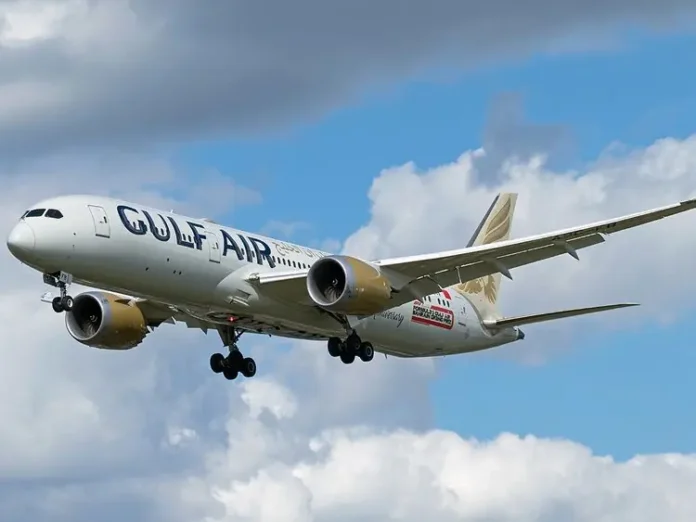National Carrier of Bahrain Faces Hurdles with Rolls-Royce and CFM Engines
Gulf Air, Bahrain’s national carrier, is facing obstacles in its growth plans due to persistent glitches with jet engines and challenges in securing aircraft delivery slots.
CEO Jeffrey Goh revealed that the airline’s expansion efforts are being hampered by durability issues with engines manufactured by Rolls-Royce Holdings Plc and CFM International, which power its Boeing Co. 787 Dreamliners and Airbus SE 320 and 321 aircraft, respectively.
With a fleet of approximately 40 aircraft, Gulf Air is striving to expand its operations and enhance its services.
However, the reliability concerns surrounding its engines have become a significant roadblock. Goh emphasized the need for both Rolls-Royce and CFM to intensify their efforts to address these challenges.
In an interview, Goh stated, “Both manufacturers realize the challenges, but they need to really step up in terms of finding solutions to the reliability of their engines.”
The remarks underscore the urgency with which Gulf Air expects the engine manufacturers to tackle the issues affecting its fleet.
The difficulties with Rolls-Royce engines on the Boeing 787 Dreamliners and CFM models on the Airbus A320 and A321 aircraft have raised concerns about the airline’s operational efficiency and reliability.
Engine reliability is crucial for airlines to maintain their schedules, ensure passenger safety, and uphold their reputation for quality service.
Rolls-Royce Holdings Plc and CFM International are prominent players in the aviation industry and are known for their cutting-edge engine technology.
However, the recurring problems experienced by Gulf Air highlight the challenges inherent in maintaining the performance and reliability of complex aerospace systems.
Gulf Air’s predicament is exacerbated by the limited availability of aircraft delivery slots, further impeding its expansion plans.
Securing delivery slots for new aircraft is essential for airlines to modernize their fleets, improve fuel efficiency, and meet growing passenger demands.
However, the scarcity of available slots poses a significant hurdle for Gulf Air as it seeks to expand its operations.
The airline’s ambitions to expand its route network and enhance its services to cater to evolving passenger preferences are contingent upon overcoming these challenges.
Gulf Air plays a crucial role in connecting Bahrain with destinations across the globe, facilitating travel and fostering economic growth.
Efforts to resolve the engine glitches and secure aircraft delivery slots are pivotal for Gulf Air’s long-term viability and competitiveness in the aviation industry.
Collaboration between the airline and its engine manufacturers, as well as strategic planning to navigate the complexities of the aircraft procurement process, will be essential in overcoming these hurdles.
As Gulf Air endeavors to navigate the turbulent skies of the aviation industry, the resolution of engine reliability issues and the acquisition of additional aircraft will be critical milestones in its journey toward sustainable growth and success.
This article was created using automation and was thoroughly edited and fact-checked by one of our staff editorial members

